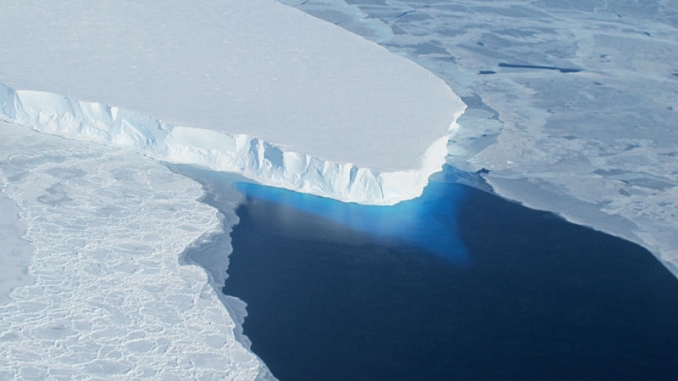Scottish University leading research into melting Antarctic glacier
St Andrews University in Scotland is leading research into the stability of a massive Antarctic glacier. In conjunction with US scientists a five-year programme will be undertaken to examine the rapid process of melting that is underway in Thwaites Glacier. It is currently in rapid retreat, accounting for around 4% of global sea-level rise, an amount that has doubled since the mid-1990s. There is a real fear that the loss of the Thwaites Glacier, which is already melting in response to climate change, could lead to a dramatic rise in sea levels accompanied by severe weather events including storm surges and hurricanes. The Thwaites Glacier in West Antarctica holds enough water to raise the global sea level by 40cm, but its collapse would destabilise other parts of the ice sheet, leading to a potential sea level rise of more than three metres.
The Natural Environment Research Council and National Science Foundation are going to deploy about 100 scientists to Thwaites Glacier on a series of expeditions. The team will use computer modelling to examine how the break-up of the glacier could increase the rate of ice flow into the ocean. Overseeing the DOMINOS (Disintegration of Marine Ice Sheets Using Novel Optimised Simulations) project is Professor Doug Benn from St Andrews. Researchers at St Andrews have won two major grants of £438,000 and £540,000 from NERC (Natural Environment Research Council) as part of the International Thwaites Glacier Collaboration.






